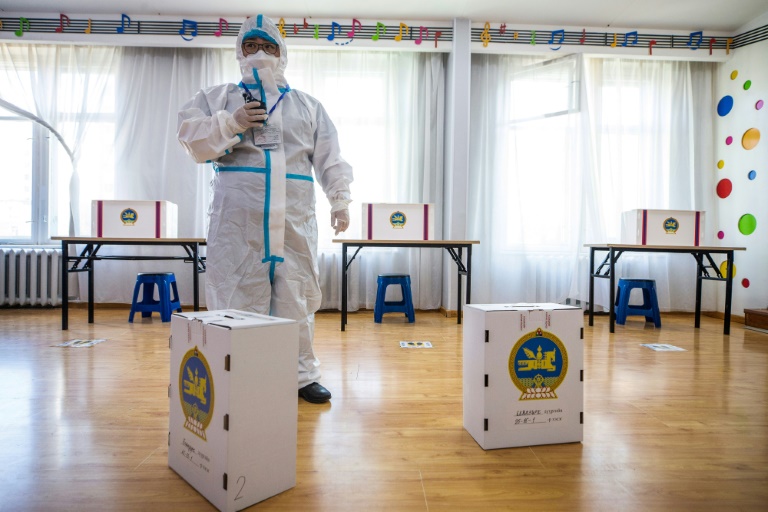Mongolians took to the polls on Wednesday to vote for the country’s new president, in the nation’s third election to take place in the shadow of the coronavirus pandemic.
Polls opened at 7am local time in the vast central Asian democracy, in an election hampered by social distancing, cancelled presidential debates and one candidate catching Covid.
There are around two million eligible voters in the landlocked country between China and Russia, where temperatures swing from minus 30 degrees Celcius (minus 22 Fahrenheit) in the winter to plus 30 (86 Fahrenheit) in the summer.
Political instability has been a constant problem for the young democracy, which passed its first constitution in 1992 after decades of Communist rule.
Former prime minister Khurelsukh Ukhnaa is seen as the frontrunner, looking to make a comeback after resigning amid public outrage in January over the treatment of a new mother with coronavirus.
Khurelsukh’s main rival is charismatic internet entrepreneur Enkhbat Dangaasuren, leader of the Green Party.
But Enkhbat’s campaign has been hindered by having to go into quarantine after testing positive for Covid-19 during the rally.
Last year, a parliamentary election delivered a landslide victory for the ruling Mongolian People’s Party — largely on the back of no domestic transmissions of the virus.
But since then, cases have soared, with around 300 deaths from Covid-19 recorded — although the country has achieved impressive rates of inoculations with around 90 percent of adults given their first dose of the vaccine.
The current president is populist businessman Battulga Khaltmaa, a former world champion in the Soviet-era martial art of sambo, who cannot run for a second term under constitutional rules.
Inequality is a key concern among Mongolian voters with the poverty rate standing at 28 percent, according to the latest World Bank survey.
The country is also one of the hardest hit by climate change, causing desertification and pollution. Traditionally heavily influenced by nomadic culture, more than two-thirds of the population now live in cities.










